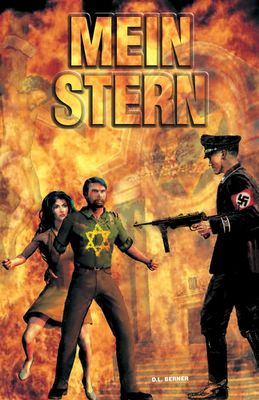Prologue ii

"Little Schicklgruber." He had read it many times in the press and heard it on the radio. The word had stung, but he had shed it like water from his back. When he announced in February of 1932 that he would be a candidate for the presidency, those who opposed his political ambitions, the Marxists and other liberal elements, had campaigned vigorously against him. "The little Schicklgruber" is what they had derisively dubbed him. "Little bastard" was its meaning. It was a reference to the fact that his father had been born illegitimate and had to use his mother’s maiden name until able to rightfully claim his true surname. But all that had been long before he was even born. His enemies had dug deep in his past for this information.
Still, no one had ever called him the name to his face until that May afternoon, exactly a year ago this day, in Nuremberg. He was in a small convoy of three motorcars that were escorting him to an auditorium. In the front and rear cars were the forerunners of what would soon be his "own" police force. The address he was to give to a waiting assembly had been unplanned and he found himself late and racing through the backstreets of the city. There had not even been time to plan the strategic, propagandist pageantry of a parade. It was a warm day and the automobile windows were opened to catch some breeze. He was alone in the back seat. In the front were a driver and his personal physician.
As the vehicles came to a momentary stop for traffic, he had looked up from the notes he was making for his campaign speech. They were beside a butcher’s shop. A Mogen David, the six-pointed star of the Jews, was painted in yellow on a window filled with the hanging carcasses of plucked fowl. A man passing the store stopped, turned and stared at him. The pedestrian’s eyes filled with recognition and he cupped his hand to his mouth and shouted, "Little Schicklgruber!" then ran down the street.
Bodyguards tumbled from the autos to give chase. "No. Go on. We are late," he had shouted to them as his cheeks flushed from the fury that welled within him. It was then he sensed someone’s stare.
A diminutive, wizened old man wearing a skullcap stood in the doorway of the shop. Shaking his head side to side, he slowly wiped his hands on his soiled apron. He had witnessed the entirety of the incident and his face was grieved.
For a moment, that seemed to last an eternity, their eyes locked and he felt the shopkeeper look deep into his soul and sense his pain. The old Jew’s eyes filled with pity and he opened his hands as if to apologize. For a brief instant, he forgot who he and the old man were and felt himself drawn to the offered comfort, a comfort he had never found in life.
Then his mind exploded. How dare a Jew–a Jew–have the temerity to pity him–to know his innermost self! He was furious with himself and began to scream curses unintelligibly and bounced in his seat, banging his head against the auto’s roof. His face contorted, turning a bright red, and saliva spilled from the corners of his mouth. He beat at the back of the frontseat and against the door.
